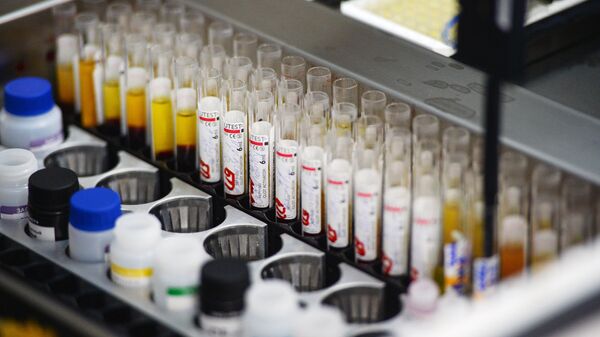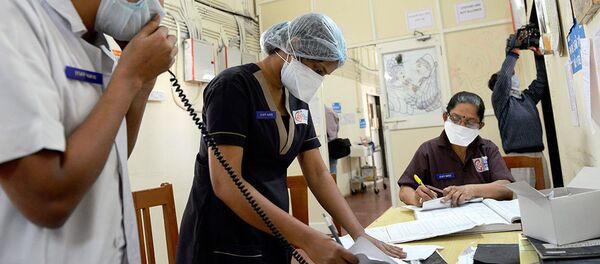MOSCOW (RIA Novosti) — An agreement to this effect was reached at the 2nd Russian-Chinese Biomedical Cooperation International Forum, held as part of the One Belt, One Road initiative. The Peter the Great St. Petersburg Polytechnic University (SPbPU) hosted the forum on November 11-16.
The combined vaccine includes a Russian DNA component and a Chinese protein (booster), Prof Andrei Kozlov of the SPbPU Molecular Virusology and Oncology Laboratory, told RIA Novosti.
In 1997, Prof. Kozlov's team participated in Russia's first program to develop an HIV vaccine. After analyzing the molecular epidemiology of an early stage of the HIV/AIDS epidemic in Russia and other countries of the former USSR, the scientists obtained full-size genomes of HIV-1variants dominant in Russia.
Beijing Universities Offer HIV Self-Test Kits in Vending Machines
It was proved that during the 15 years of the epidemic development which started in 1995, the level of genetic diversity of the Subtype A strains remained low in Russia, making it possible to create a series of plasmids based on a cloned genome of Subtype A HIV-1strain, plasmids capable of expressing four HIV-1 genes in mammals' cells. This formed the basis of the first Russian DNA vaccine against HIV that passed Stage I of clinical tests.
"A DNA vaccine is a platform, on which we can build a number of vaccine candidates," Prof. Kozlov said. In his view, creating a concomitant HIV vaccine could become a powerful research project for Russian and Chinese scientists, who decided to pool their findings.
Speaking about the need for this kind of research, he cited statistics to the effect that there are between 700,000 and 1 million HIV-infected people in Russia.
"All these people should be provided with free medical treatment. Currently, however, only a quarter of this number get therapy at the cost of about 20 billion rubles and it will cost over 80 billion rubles to offer medication to every HIV-positive patient," he said, adding that the drugs had to be taken for life, but they did not lead to recovery and only made the disease chronic.
"Clearly, not a single country in the world can do without an HIV vaccine," he said in conclusion.
The first forum, held in Shanghai in June 2017, was sponsored by the Russian General Consulate, the Shanghai Administration, the PRC Biomedical Association, and others. The initiative for it came from the SPbPU Mission in Shanghai and the PuE business incubator.
At that time, the Russian-Chinese Biomedical Cooperation Center was created to develop innovative medical technologies, materials, and equipment, and to train highly skilled personnel.




